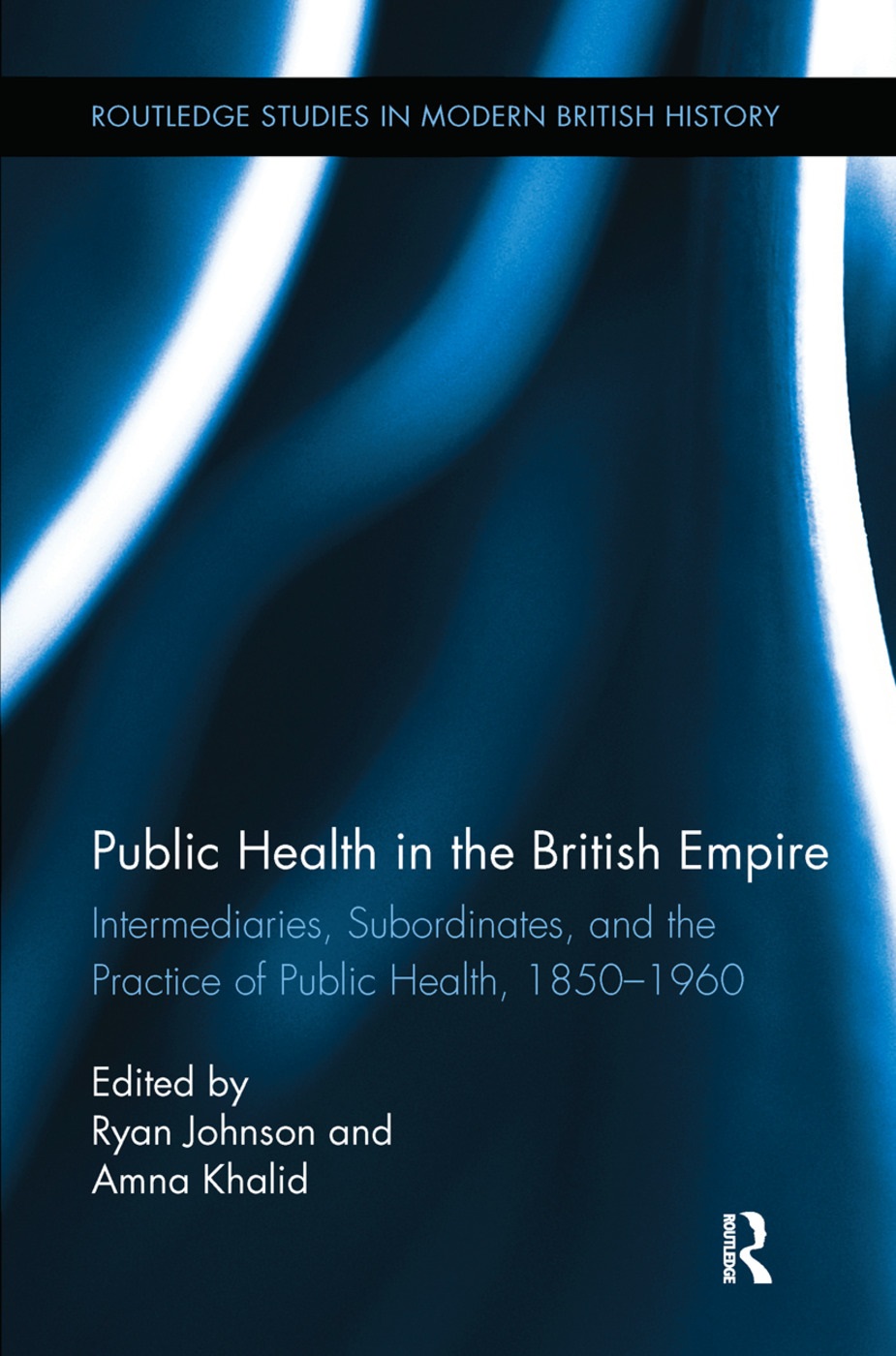“‘A Laudable Experiment’: Infant Welfare Work and Medical Intermediaries in Early Twentieth-century Barbados” in Public Health in the British empire: Intermediaries, Subordinates, and Public Health Practice, 1850-1960

Over the last several decades, historians of public health in Britain’s colonies have been primarily concerned with the process of policy making in the upper echelons of the medical and sanitary administrations. Yet it was the lower level staff that formed the backbone of public health systems in the colonies. Although they constituted the bases of many colonies’ public health machinery, there is no consolidated study of these individuals to date. Public Health in the British Empire addresses this gap by bringing together historians studying intermediary and subordinate staff across the British Empire.
Along with investigating the duties and responsibilities of medical and non-medical intermediary and subordinate personnel, the contributors to this volume show how the subjectivity of these agents influenced the manner in which they discharged their duties and how this in turn shaped policy. Even those working as low level assistants and aids were able to affect policy design. In this way, Public Health in the British Empire brings into sharp relief the disaggregated nature of the empire, thereby challenging the understanding of the imperial project as an enterprise conceived of and driven from the center.
Juanita De Barros is a professor of History at McMaster University and former president of the Canadian Association of Latin American and Caribbean Studies.
Other publications from this author include:
- PUBLIC HEALTH AND THE IMPERIAL PROJECT (2016)
- “Crossing colonial boundaries: health and the responses of ‘colonial mediators’ to the crisis of the 1930s in the French and British Caribbean” in Canadian journal of Latin American and Caribbean studies, 38 (2) (2014)
- Reproducing the British Caribbean: Sex, Gender, and Population Politics after Slavery (2014)
- “Historical Commentaries. British Guiana (Guyana)” in The Marcus Garvey Universal Negro Improvement Association Papers, Volume XI: The Caribbean Diaspora, 1910-1920 (2011)
- “Improving the Standard of Motherhood: Infant Welfare in Post-Slavery British Guiana” in Health and Medicine in the circum-Caribbean, 1800-1968 (2009)
- Health and Medicine in the Caribbean: Historical Perspectives (2009)
- Beyond Fragmentation: Perspectives on Caribbean History (2006)
- “‘Working Cutlass and Shovel’: Labour and Redemption at the Onderneeming School in British Guiana” in Contesting Freedom: Control and Resistance in the Post-emancipation Caribbean (2005)
- “Urban British Guiana, 1838-1924: Wharf Rats, Centipedes, and Pork Knockers” in Masters, Servants, and Magistrates in Britain and the Empire, 1562–1955 (2004)
- Order and Place in a Colonial City: Patterns of Struggle and Resistance in Georgetown, British Guiana, 1889-1924 (2002)
